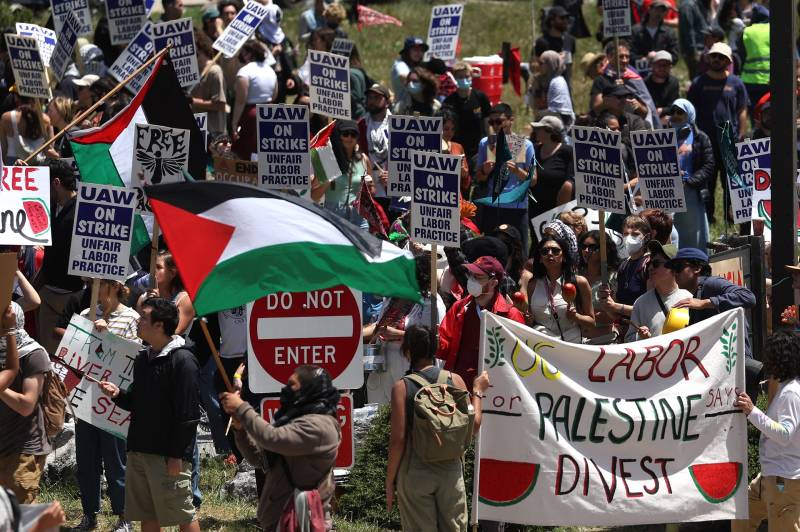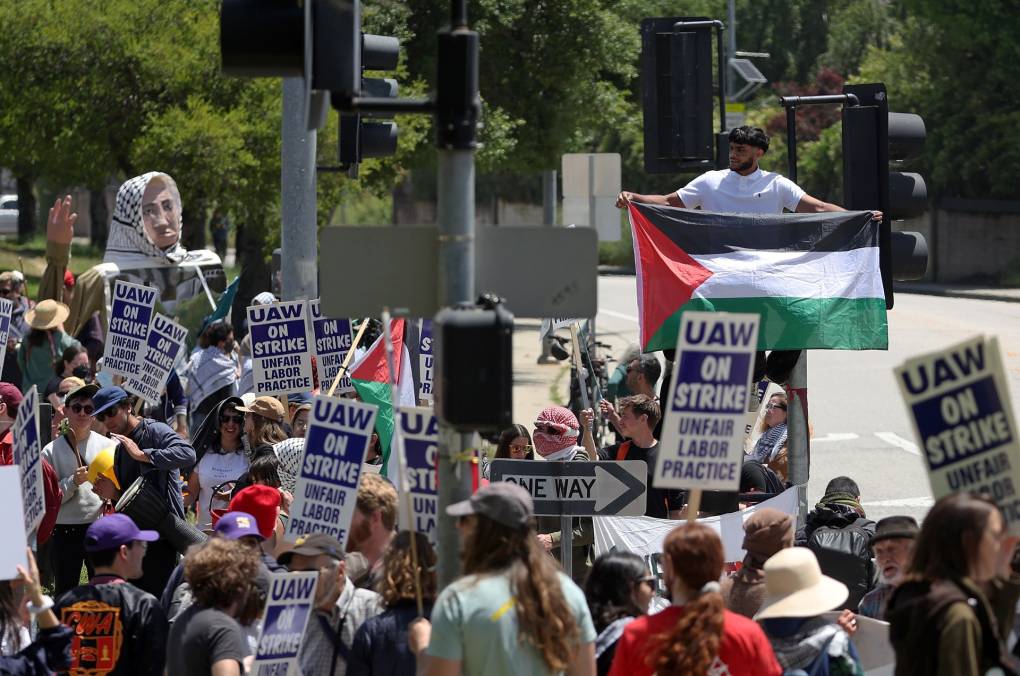UC Santa Cruz officials said that they had not been served the suit as of Tuesday morning but that they are committed to upholding community members’ rights of free expression and speech and “remain confident that decisions made in the spring were necessary and critical to preserve safety, access, and operations of the campus.”
Laaila Irshad, one of the students named in the suit, was a resident adviser and was compensated for her work through free housing and meal points. The campus ban meant she wasn’t able to access it either.
“She didn’t really have a way to get food. She doesn’t receive parental support; she depends on the meal points that she receives in compensation for her R.A. job,” Lederman said. “She also couldn’t do her R.A. job, even though residents were still contacting her for help.”
Irshad said that she failed her classes when she couldn’t access her computer, complete assignments, or attend classes.
Now, Irshad is considering taking time off of school due to the stress and concerns for safety.
“The ban prevented me from accessing my meal plan, my job, and my housing. It was incredibly destabilizing physically, emotionally, and financially,” she said in a statement published by the
American Civil Liberties Union NorCal branch.
The bans occurred during the last two weeks of the spring quarter, and according to Professor Christine Hong, who is also joining the lawsuit over her ban, it was up to individual instructors to decide whether to offer students a remote option for their final exam.
Hong said she arrived at the protest around 11 p.m. after hearing from a student that police were present.
“In the past, faculty have served as a buffer between students and the police at different protests. We’ve also been there to witness what has happened, and I also went because I also was joining in the protest,” Hong, who is the director of the campus Center for Racial Justice, said.
Her banishment prevented her from accessing her personal library, which was on campus, and her office. She also wasn’t able to record the necessary asynchronous lectures in the campus’s recording studio.
Hong had a hearing after ten days, and her campus ban was overturned that evening. The lawsuit is asking for an injunction to prevent the school from issuing these bans and a declaration that doing so is illegal, she said.
“We are trying to make sure that both UC Santa Cruz and others don’t use this tactic again to just banish students and faculty from campus for speaking out for Palestine,” Lederman told KQED.
KQED’s Keith Mizuguchi contributed to this report.


